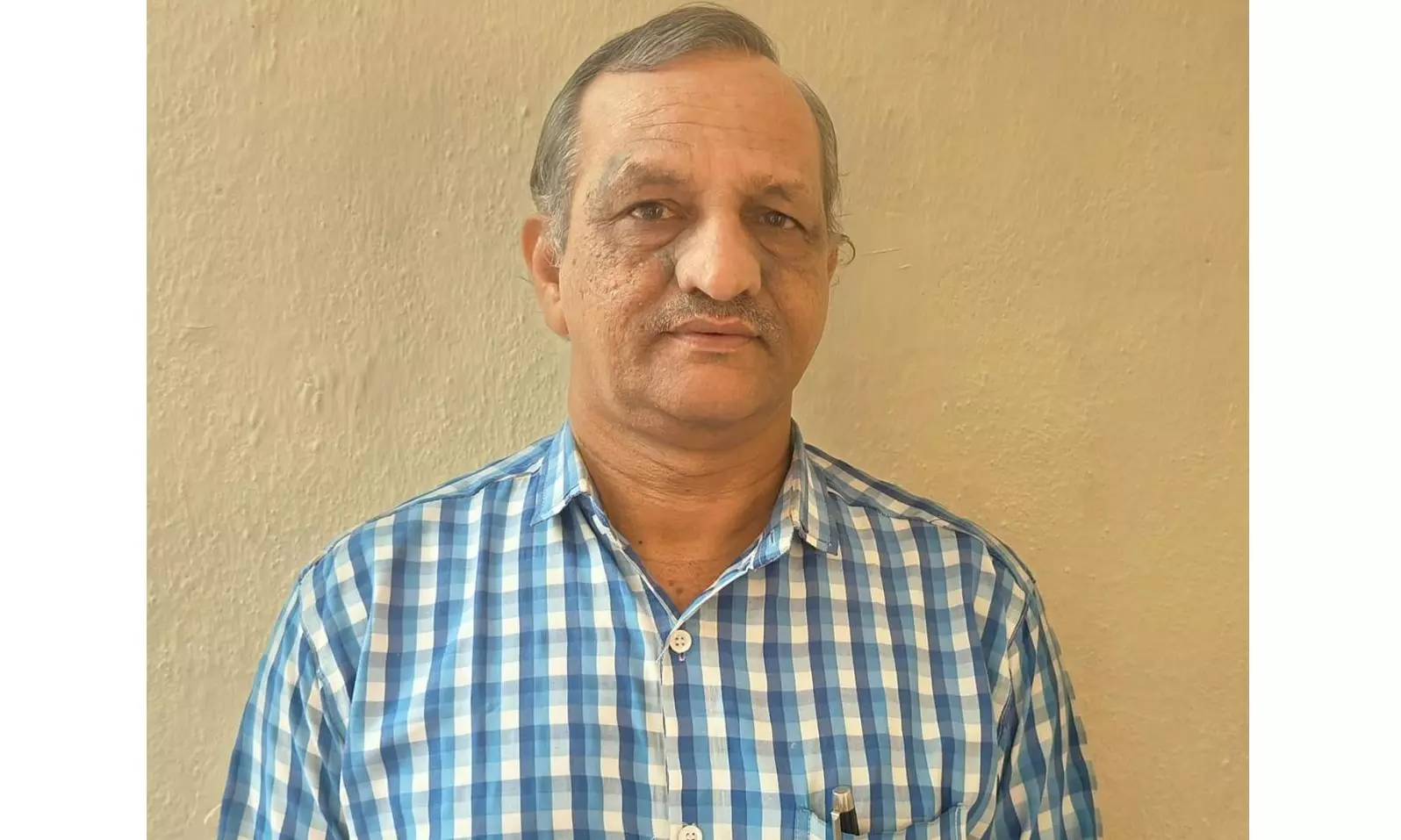Polavaram officials not to release water after March 31

KAKINADA: Though there is plenty of water in River Godavari, irrigation officials will not be able to supply irrigated water to the agriculture fields after March 31 as Polavaram project officials have made it clear that they will expedite the Polavaram project cofferdam works and laying of pipeline works from April 1.
Project Superintendent Engineer M. Nagireddy said that Chief Minister Y.S. Jagan Mohan Reddy has given next year’s December as the deadline to complete the project and commencement of project works in April. He also said that the 300-meter length of pipes would be laid near the project, which would stop water flows.
Meanwhile, 9,000 cusecs of water can be supplied to the farmers till March 31. The Irrigation Advisory Board meeting was held at Rajamahendravaram on Tuesday and was presided over by Deputy Chief Minister Dharmana Krishna Das, also the district in-charge minister.
Ministers, MLAs, Farmers’ Union leaders and others from East and West Godavari districts discussed thoroughly about the availability of water and releasing it to fields in Rabi season.
Irrigation Superintendent Engineer N. Siva Ramakrishna said that water can be supplied till March 31 and water may not be flown downstream from Polavaram project.
Rajya Sabha member Pilli Subhash Chandra Bose appealed to the irrigation and Polavaram project officials to supply the water up to April 15 as paddy crops will need water during those days. He also said that in 2008, there was severe water shortage in Godavari and then a plan of action for water management was prepared by the then chief minister Y.S. Rajasekhara Reddy for supplying water to the entire crop with efficient management.
He advised Polavaram project officials to use sophisticated technology and extend their date up to April 15. However, Nagireddy said that after holding thorough discussions on all possibilities and available technology, March 31 has been fixed as the last date for releasing water to the second crop at Polavaram project site and their works should be completed by June, as the rainy season may stall progress of the project.
Bose said that if the Polavaram project officials give another 15 days, it will be enough to save the second crop.
Housing Minister Ch. Sriranganatha Raju said that there is plenty of water but due to the Polavaram project and coffer dam works, the officials say that they can’t supply water from April.
He said “If we leave officials for this season, the project would be completed and then the water problem would be sorted out.”
Agriculture Minister Kurasala Kannababu said that every year tail-end lands are facing a huge water crisis and irrigation officials should chalk out an action plan to save the tail-end farmers.
Kakinada MP Vanga Gita said that officials should pay attention to the supply of drinking water and to livestock. Otherwise, the people and animals would face difficulties due to scarcity of water.
Meanwhile, the Telugu Desam MLA of Palakollu, Nimmala Ramanaidu said that the farmers lost heavily in last year’s Rabi and water should be supplied up to April 15. He said that during the Telugu Desam regime, advanced and sophisticated technology had been used for the project works, which fetched them the Guinness Book honours. He suggested the project officials use ultra-modern technology and save crops.
East Godavari district Collector D. Muralidhar Reddy and his West Godavari counterpart Revu Muthyala Raju said that agriculture and irrigation officials should encourage farmers to opt for direct sowing method to save time and money. He also suggested the farmers should sow short period varieties. Muthyala Raju said that an action plan has been made ready to complete the crop by March 31.
Krishna Das said awareness should be created among farmers on availability of water, closure of canals and also the merits of direct sowing method. He suggested involvement of Rythu Bharosa Kendra volunteers.

